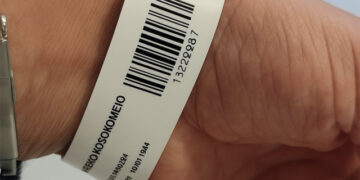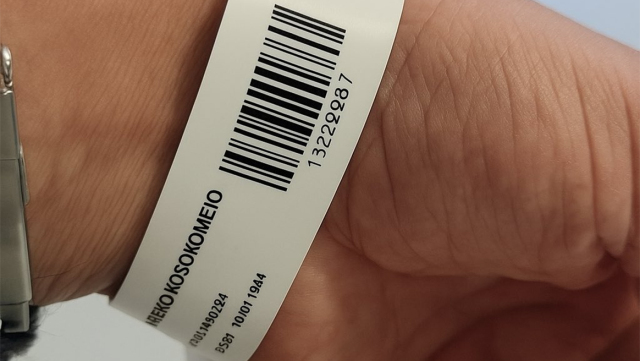The “Evangelismos” hospital has introduced a new patient tracking system for the emergency rooms. This initiative allows doctors to monitor the tests performed on each patient and the various “stops” they make during their time in the emergency department.
As part of the health ministry’s plan, this pilot program will expand to 14 hospitals by mid-July and to 80 hospitals by January 2026.
Patients utilizing the hospital’s on-call service will receive a portable GPS device that tracks their movement throughout the hospital, recording the stops made in different departments and the delays that currently extend for hours. Notably, this “wristband” will not be provided to patients transferred by ambulance.
Upon entering the Emergency Department (ED), patients will be directed to the traffic desk, where they will receive a plastic wristband with a barcode. They will place this on their wrist before proceeding to case screening to determine which medical office they should visit. After being assigned, patients will scan their wristband at specific machines, enabling the hospital to gather data on wait times.
Special screens will display real-time updates on waiting times, showing the number of each case currently being attended to. Importantly, all data regarding delays at each stage of a patient’s journey through the ICU will be logged onto a digital platform, allowing the Ministry of Health to identify problem areas within the on-call service at each hospital. This information aims to facilitate improvements in ER operations and highlight areas needing intervention.
By mid-June, the tracking system is set to be implemented in several hospitals, including KAT, Sismanoglio, and Amalia Fleming. Additionally, other facilities such as Amalia Fleming, Aghia Sophia Children’s Hospital, Gennimatas Hospital, Laiko, Penteli Children’s Hospital, and Agios Savas are also to be equipped with this system.
Georgiadis: The NHS is Evolving and Improving
In a Thursday morning social media post, Health Minister Adonis Georgiadis emphasized that this new system will: “a) provide real data on current conditions, enabling us to intervene in instances of excessive delay; b) quickly inform patients of wait times based on their chosen hospital; c) empower us to design targeted policies accordingly.”
Ask Me Anything
Explore Related Questions

















